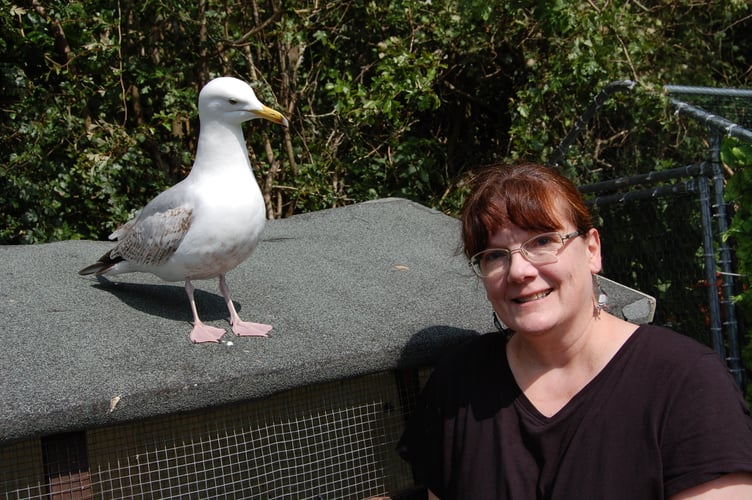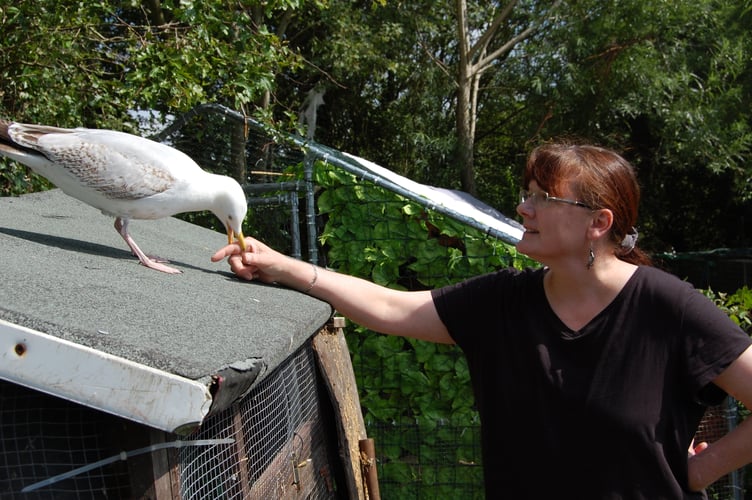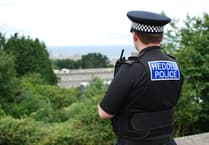One woman has taken it upon herself to rescue and rear mid-Wales’ poorly seagull chicks.
Every mid-May, Helen Fitzpatrick takes time off from her job and turns her attention to Herring Gull chicks.
For eight weeks each spring, her phone lights up with calls from people who have found chicks fallen from nests or injured.
Despite people's misgivings, Herring Gulls are on the UK Red List for Birds of Conservation Concern due to ongoing population decline.
Helen, who lives near Borth, is the only person she knows to rescue gulls locally, taking rescues from north Gwynedd, Ceredigion and west Powys.
She admits they are the “most demanding”, “messiest and stinkiest” birds to rear, the 56-year-old adding: “If I won the lottery, I would take care of birds full-time and have the biggest animal sanctuary going.

“I started rescuing birds as a child and had a very low death rate, and word just spread.
“People falsely call them vermin, but they’re incredibly intelligent, worth saving and very cute.”
She started rescuing birds at 12 years old - one of her earliest birds was a starling with an injured leg.
Her dad, an aircraft engineer, encouraged her to set the leg with a matchstick - a vet later commenting they couldn’t have done a better job themselves.
Though she’s not professionally trained, vets now send referrals to her from across the county for her success rate in rearing chicks who fall from rooves due to the heat, or this year, the wind.

Her husband is her “endlessly supportive” driver, fielding her calls despite an allergy to birds.
The “expensive” hobby is supported by people donating dog food to her shop, the Accessorize on Great Darkgate Street.
Her neighbours don’t seem to mind either, feeding the adult birds who hang around after fledging.
She said her main mission is to educate people: “If people got to know a gull, I think their attitudes would change.
“They’re known for stealing, but if you treat them with respect, they will do so.
“They’ve got an incredible memory and will remember the way you treat them.
“They also mate for life.”

Commenting on the recent trend which hit headlines about people deliberately throwing food onto roads chased by gulls which are then hit by cars, she said: “My response to that is unprintable.
“It’s disgusting behaviour from a moronic section of society.
“I’ve seen parents throwing things at gull chicks in Aber and watching their children copy, making it generational cruelty.
“I’ve also seen people drive at them - Aber is mostly 20mph so there’s no need to run them over.
“I think we need to proactively prosecute people who are deliberately cruel to gulls.”
In the UK it is against the law to intentionally kill, injure, or take wild birds, with penalties including up to six months' imprisonment.
Donate to Helen’s CrowdFunding page - https://www.crowdfunder.co.uk/p/networkbirdlife-care-heal-release




Comments
This article has no comments yet. Be the first to leave a comment.